The Cities of Tomorrow and the City to Come: A Theology of Urban Life Noah J. Toly
The Scalpel and the Cross: A Theology of Surgery Gene L. Green
The Political Disciples: A Theology of Public Life Vincent E. Bacote
Faithful: A Theology of Sex Beth Felker Jones
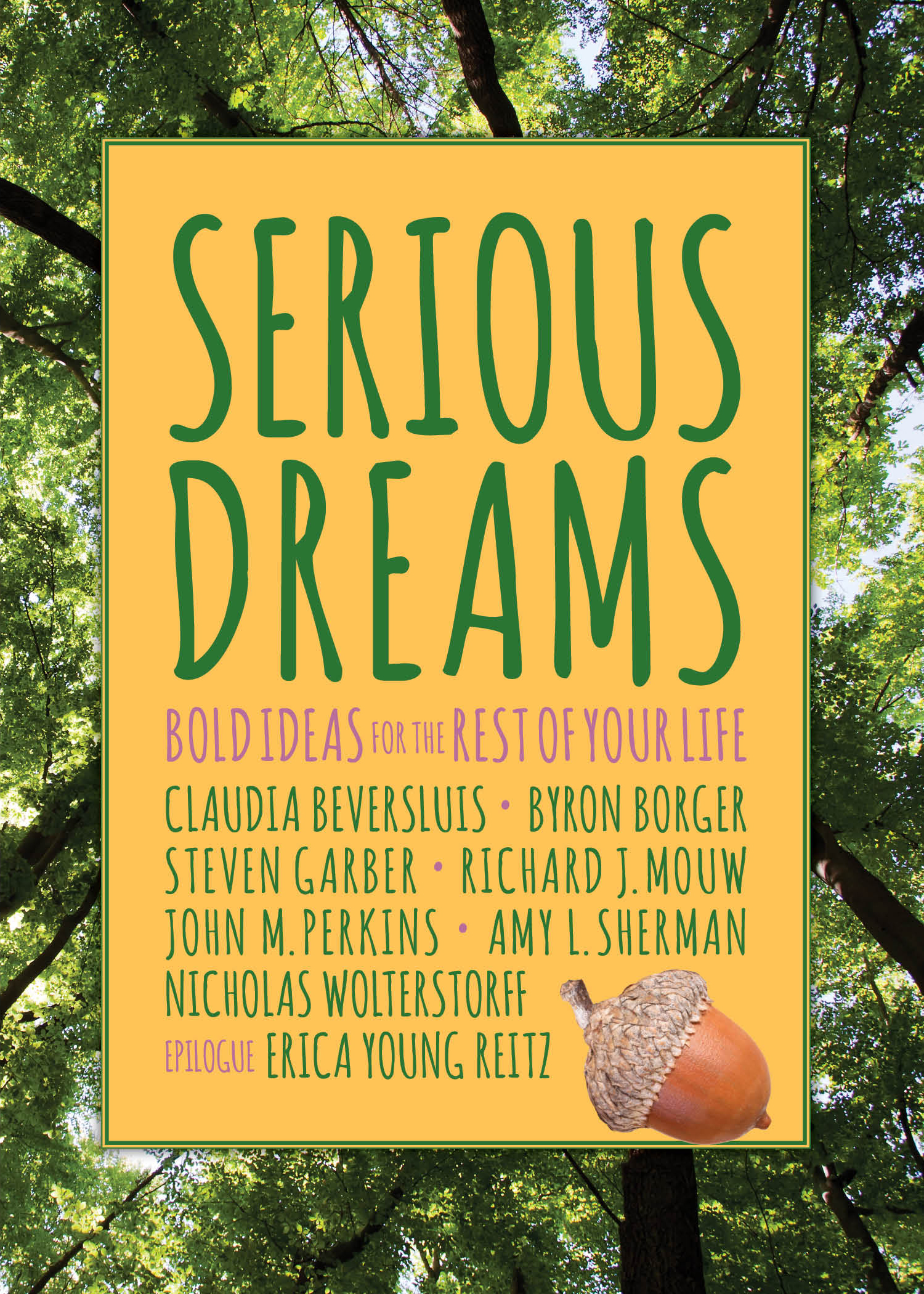 One of the themes of each of the speeches collected in my new book, Serious Dreams, is that God cares about all of life, and that we can discern a sense of holy vocation in our callings and careers. We are to steward our vocations for the sake of the world. Any legitimate work can be an avenue to serve God and help the common good — a Christian view of work is for the butcher, baker, and candlestick-
One of the themes of each of the speeches collected in my new book, Serious Dreams, is that God cares about all of life, and that we can discern a sense of holy vocation in our callings and careers. We are to steward our vocations for the sake of the world. Any legitimate work can be an avenue to serve God and help the common good — a Christian view of work is for the butcher, baker, and candlestick-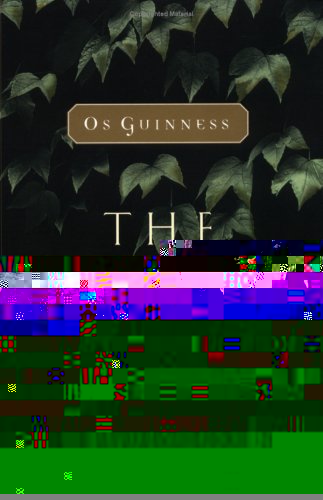 maker, we sometimes joke. Or, as Os Guinness puts it in his classic, must-read work The Call: Finding and Fulfilling the Central Purpose of Your Life (Nelson; $17.99) God’s redemptive work is for “everyone, everywhere, in everything.” I think it may have been Tom Sine who coined the phrase “whole life discipleship” and it is one the campus ministry CCO uses routinely. It is no surprise that those who talk about Christ’s saving work as “the restoration of creation” and the fruit of the gospel as not just the forgiveness of sinners, but as the flourishing of culture with a vision of “creation regained” would create a student conference such as Jubilee.
maker, we sometimes joke. Or, as Os Guinness puts it in his classic, must-read work The Call: Finding and Fulfilling the Central Purpose of Your Life (Nelson; $17.99) God’s redemptive work is for “everyone, everywhere, in everything.” I think it may have been Tom Sine who coined the phrase “whole life discipleship” and it is one the campus ministry CCO uses routinely. It is no surprise that those who talk about Christ’s saving work as “the restoration of creation” and the fruit of the gospel as not just the forgiveness of sinners, but as the flourishing of culture with a vision of “creation regained” would create a student conference such as Jubilee.
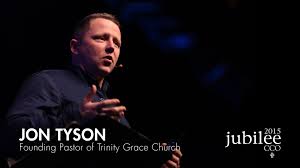 To get a great, great sense of this vision of faith, this perspective informed by a the whole story of God, watch this great talk by Jon Tyson from Jubilee 2015. I was simply thrilled, even moved to tears, as I rejoiced that so many young evangelical leaders and authors like Jon Tyson (from Trinity Grace in NYC and author of Rumors of God) is so clear about this stuff, and how these 3000 students at the conference in Pittsburgh were hearing this message of all of life redeemed and the deep meaning of human cultural involvement. I do hope you can bookmark this and watch it, soon (and don’t miss the ending where he talks specifically about the church!) This Jubilee talk is illustrative of the work of the CCO and is one of the reasons I dedicated my little book to CCO staff, for not just bringing students to Jubilee, but for teaching and modelling and helping students experience the shalom of God, leading them into Jubilee visions of vocation, year by year.
To get a great, great sense of this vision of faith, this perspective informed by a the whole story of God, watch this great talk by Jon Tyson from Jubilee 2015. I was simply thrilled, even moved to tears, as I rejoiced that so many young evangelical leaders and authors like Jon Tyson (from Trinity Grace in NYC and author of Rumors of God) is so clear about this stuff, and how these 3000 students at the conference in Pittsburgh were hearing this message of all of life redeemed and the deep meaning of human cultural involvement. I do hope you can bookmark this and watch it, soon (and don’t miss the ending where he talks specifically about the church!) This Jubilee talk is illustrative of the work of the CCO and is one of the reasons I dedicated my little book to CCO staff, for not just bringing students to Jubilee, but for teaching and modelling and helping students experience the shalom of God, leading them into Jubilee visions of vocation, year by year.
As I say in the introduction to Serious Dreams (which you can read here)
We have to be life-long learners,
deepening our insight and fidelity to our callings, our jobs, our places
and relationships. Whether we are called to the high-power corporate
world in a cool urbane setting or a less prestigious job in a small
town, we have to do the work, learning day by day. These speeches will
be good reminders of the bigger picture, even serving as provocative
commissionings to see your life as part of the Biblical story of the
all-of-life-redeemed Kingdom coming. All of these speeches invite you to
fresh thinking and renewed commitments to joining God in your careers
and callings…
But yet, the dualisms that separate faith from life, callings from careers, and that suggest a gulf between Sunday and Monday, between worship and work, between faith and public life, still remain. There is a gap between religion and life, prayer and politics, and it is pervasive.
Beth and I have had the joy of selling books at four very different sorts of religious education events the last two weeks, and have so appreciated the interest and support shown to us by conference organizers and participants. These kinds of off-site events are part of our work, and we value serving various sorts of Christians and setting up displays in diverse corners of God’s Kingdom. One thing that comes up every time we sells books, though, almost anywhere, is how perplexed people are that we carry “secular ” books or that we display books on topics that at first blush are not overtly religious — technology, art, schooling, science, globalism. Not that folks object — most are delighted — but even folks that seem to know us express a bit of surprise. Or they say things like “well, I can’t have my church budget pay for that since it isn’t religious” or “I’ll buy this, but I can’t tell my congregation that I’m reading it” or, even flatly, “I never expected to see that in a Christian bookstore.” Again, these comments aren’t spoken as criticisms and they aren’t usually about anything all that controversial. But people say things that betray their confusion about the scope of God’s work, that all of life is being redeemed, that Christ is Lord of all zones of life, that the art of Christian reading includes reading about all of creation and culture. There remains a sense, even from otherwise progressive church staff or Biblically-informed leaders, that there is some divide between what is seen as religious reading and what is considered lesser or even secular topics.
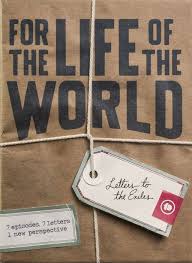
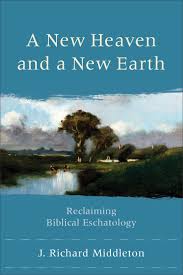 I was glad, therefore, that at one event recently we sold some of the delightful For the Life of the World DVD (Gorilla Productions; $25.00) that artfully illustrates a creation-wide vision of redemption and reminds us of our calling as exiles in this good but fallen world.
I was glad, therefore, that at one event recently we sold some of the delightful For the Life of the World DVD (Gorilla Productions; $25.00) that artfully illustrates a creation-wide vision of redemption and reminds us of our calling as exiles in this good but fallen world.
And, I was glad for the chance to highlight Richard Middleton’s exceptional, rich book of Biblical studies, A New Heaven and Earth: Reclaiming Biblical Eschatology (Baker Academic; $26.99.)
It was good to highlight the exceptionally rigorous but important book by Jamie Smith How (Not) to Be Secular (Eerdmans; $16.00) about the heady Catholic philosopher Charles Taylor and his uber-important work The Secular Age and the 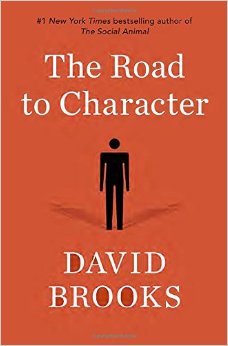
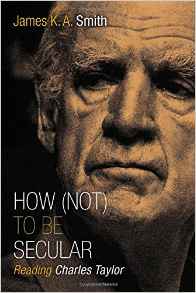 stunning, deeply rewarding new book by pundit David Brooks The Road to Character (Random House; $28.00) which combines perceptive cultural analysis and nifty reportage as well as hints of his own journey towards more explicit theological awareness. I note that these two books by Smith and Brooks include astute observations about the texture of our times, and help people of faith understand our culture and embody faith in daily discipleship that makes sense. Again, if God is redeeming all of life, and we are to take up our vocation to be Christ’s agents of restoration and hope in the world, these sorts of books (that are certainly not pietistic or devotional in any conventional sense) are profoundly useful for Christian discipleship.
stunning, deeply rewarding new book by pundit David Brooks The Road to Character (Random House; $28.00) which combines perceptive cultural analysis and nifty reportage as well as hints of his own journey towards more explicit theological awareness. I note that these two books by Smith and Brooks include astute observations about the texture of our times, and help people of faith understand our culture and embody faith in daily discipleship that makes sense. Again, if God is redeeming all of life, and we are to take up our vocation to be Christ’s agents of restoration and hope in the world, these sorts of books (that are certainly not pietistic or devotional in any conventional sense) are profoundly useful for Christian discipleship.
 My own speech in my chapter in the Serious Dreams: Bold Ideas for the Rest of Your Life in fact, includes some reflections on a passage in 1 Chronicles that mentions “sons of Issachar.” I invite young women and men to have the same reputation as those whose legacy was to “understand the times and know what God’s people should do.” We really are invited to think about every sphere of life and to be willing to serve, to even suffer, for the sake of cultural flourishing.
My own speech in my chapter in the Serious Dreams: Bold Ideas for the Rest of Your Life in fact, includes some reflections on a passage in 1 Chronicles that mentions “sons of Issachar.” I invite young women and men to have the same reputation as those whose legacy was to “understand the times and know what God’s people should do.” We really are invited to think about every sphere of life and to be willing to serve, to even suffer, for the sake of cultural flourishing.
Which brings me to four little books I am delighted to tell you about, that I fear may not be taken seriously in the religious book world, but certainly ought to be known among us. I want to kick up my heels in celebration, and praise God for this exact kind of work. These brand new books are fantastic, short, profound, and very, very useful for this project of nurturing embodied daily discipleship, relating faith and various aspects of ordinary life. They are the first four in a set called the “Ordinary Discipleship Series” edited by Wheaton College theology professor Gene L. Green. Kudos to those who cooked up the idea and to Zondervan for daring to publish these kinds of books that seem to cross the boundaries of scholarly theological studies and what some might call “Christian living” categories.
(A little aside; I can’t help myself: John Ortberg’s fantastic book on the spiritual disciplines, The Life You Always Wanted: Spiritual Disciplines for Ordinary People (Zondervan; $15.99) just came out, finally, in paperback. I mention it here because Ortberg, a Presbyterian pastor, writes how odd it is when people ask about your “spiritual life.” He wonders what they even mean – what part of one’s life isn’t related to one’s spiritual life, after all? He thinks it is better to just ask about one’s life, not one’s “spiritual” life. This is in a book, remember, about spiritual disciplines, by an author who recently wrote a book about what he learned from Dallas Willard called Soul Keeping (Zondervan; $22.99.) These are not written quite like Barbara Brown Taylor’s exquisite An Altar in the World: The Geography of Faith (HarperOne; $14.99) but make a similar point. We experience God and work out the implications of our commitments to Christ in our human lives in the real world. Once we understand who God is and that we live in God’s world, saved by grace through faith, we can find great insight about the nature of daily life. That’s just the way it works, living as we do in the real world, sustained by Christ. We desperately need a spirituality of the ordinary. As Steve Garber reminds us in his chapter in my Serious Dreams volume, we live in a “covenantal cosmos.” So yes, cheers for John Ortberg’s efforts to teach spirituality in a way that makes sense to ordinary people and for ordinary life, living in a burning bush world sustained by Christ Himself.)
ORDINARY DISCIPLESHIP SERIES
Which brings us to this question of just how we related Christian thinking to various spheres of life, different aspects of our lived experiences. Gene Green’s “Ordinary Theology” series provides brief studies of four areas of life, and each one is fabulously interesting, quite helpful. Each one starts with a story from the author’s life and then offers Biblical and theological reflections which help inform or shape our understanding and involvement in the particular area of life being examined. Much more can be said about each of these areas, of course, but for a primer (each is about 80 – 100 pages) each one takes us a long way into Christian perspective and how to integrate faith and thinking, for the sake of whole-life discipleship.
Each one of these sells for $11.99. We have them each on sale here at BookNotes for 20% off ($9.60) but will offer a bigger savings if you buy all four – just $8.00 each!
I do recommend ordering all four at this extra discount, since you’ll not only want to read them all, but you may want to share this one or that one, to different friends.
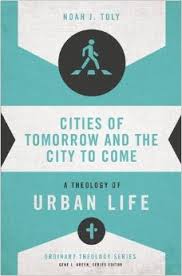 The Cities of Tomorrow and the City to Come: A Theology of Urban Life Noah J. Toly (Zondervan) $11.99 This is a must-read for nearly all of us, I’d say (and I live in a small town!) Knowing about new urbanism, thinking about our spaces and built environment, and wondering how to be faithful as we consider the trends towards urbanization are urgent. This whole area (not just urban ministry, as urgent as that is, but what might be called urban sociology, thinking about design, planning and the like) is increasingly important and even church folks are starting to think about the role of things like zoning, or buying local, or how farmer’s market’s and art galleries enhance neighborhoods. Missional churches are intentional about their locations and the nature of what makes towns flourish and the uniqueness of their own places. This all can be very exciting stuff, and this book is fabulous – what an example of all this we are talking about, relating faith to social location, being attentive to our environment, relating faith the public life. I am perplexed why Toly (who is an experienced professor who guides undergrads in an urban living semester as they consider how to inhabit our spaces) doesn’t cite the wonderful The Space Between: A Christian Engagement with the Built Environment or even Sidewalks of the Kingdom both by Eric O. Jacobsen, which are very nice introductions to these themes as well. Otherwise, Toly’s bibliography is fabulous, his writing is passionate, and the opening story, about a well-known urbanist who asked why he, as a scholar in this field, wanted to “think Christianly” since we wasn’t, technically a theologian, is worth the price of the book. He ends with a lovely prayer for the city from the Book of Common Prayer. This is very highly recommended and should be discussed in churches wanting to be intentional about their own mission to seek the peace of the city.
The Cities of Tomorrow and the City to Come: A Theology of Urban Life Noah J. Toly (Zondervan) $11.99 This is a must-read for nearly all of us, I’d say (and I live in a small town!) Knowing about new urbanism, thinking about our spaces and built environment, and wondering how to be faithful as we consider the trends towards urbanization are urgent. This whole area (not just urban ministry, as urgent as that is, but what might be called urban sociology, thinking about design, planning and the like) is increasingly important and even church folks are starting to think about the role of things like zoning, or buying local, or how farmer’s market’s and art galleries enhance neighborhoods. Missional churches are intentional about their locations and the nature of what makes towns flourish and the uniqueness of their own places. This all can be very exciting stuff, and this book is fabulous – what an example of all this we are talking about, relating faith to social location, being attentive to our environment, relating faith the public life. I am perplexed why Toly (who is an experienced professor who guides undergrads in an urban living semester as they consider how to inhabit our spaces) doesn’t cite the wonderful The Space Between: A Christian Engagement with the Built Environment or even Sidewalks of the Kingdom both by Eric O. Jacobsen, which are very nice introductions to these themes as well. Otherwise, Toly’s bibliography is fabulous, his writing is passionate, and the opening story, about a well-known urbanist who asked why he, as a scholar in this field, wanted to “think Christianly” since we wasn’t, technically a theologian, is worth the price of the book. He ends with a lovely prayer for the city from the Book of Common Prayer. This is very highly recommended and should be discussed in churches wanting to be intentional about their own mission to seek the peace of the city.
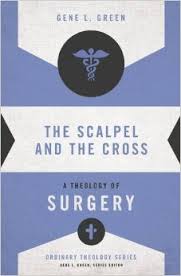 The Scalpel and the Cross: A Theology of Surgery Gene L. Green (Zondervan) $11.99 Wow, what a book! This is “lived theology” emerging directly from the authors own experience. Geen is a Biblical scholar and professional theologian who, in fact, had to undergo serious heart surgery. Schooled as he is in the integration of theology and life, he searched in vain for a book on the theology of surgery. (There are hardly any good books for doctors, as such, on redemptive views of medicine, by the way, and I often advise docs to read the good body of literature on Christian views of nursing, at least.) Green’s narrative about his emotional journey reflecting on his own faith and how it did or didn’t equip him and his family for going under the knife, and his search for theological writings on the subject make for a riveting read. Am I weird for being on the edge of my seat as this scholar tells about the history of medicine, what story shaped the rise of surgery, and how he was researching all of this as not only a “theologian of the ordinary” but as a patient. Again, more could be said, I’m sure, and the task for surgeons themselves to write Christianly about their work, is urgent. But, for now, this little volume is a significant contribution to Christian views of health care, medicine, and the art of doctoring, especially in serious matters of organ transplants, life-and-death procedures, and the complex matters of the economics of health care in a poverty-stricken world. I would love to hear Green’s view of the provocative book (co-written by a pediatrician and poet) called Reclaiming the Body: Christians and the Faithful use of Modern Medicine by Joel Schuman and Brian Volck (Brazos; $22.00.) Kudos to Dr. Green for putting together this whole series and for his own passion for relating Bible teaching and Christian theology to all of life.
The Scalpel and the Cross: A Theology of Surgery Gene L. Green (Zondervan) $11.99 Wow, what a book! This is “lived theology” emerging directly from the authors own experience. Geen is a Biblical scholar and professional theologian who, in fact, had to undergo serious heart surgery. Schooled as he is in the integration of theology and life, he searched in vain for a book on the theology of surgery. (There are hardly any good books for doctors, as such, on redemptive views of medicine, by the way, and I often advise docs to read the good body of literature on Christian views of nursing, at least.) Green’s narrative about his emotional journey reflecting on his own faith and how it did or didn’t equip him and his family for going under the knife, and his search for theological writings on the subject make for a riveting read. Am I weird for being on the edge of my seat as this scholar tells about the history of medicine, what story shaped the rise of surgery, and how he was researching all of this as not only a “theologian of the ordinary” but as a patient. Again, more could be said, I’m sure, and the task for surgeons themselves to write Christianly about their work, is urgent. But, for now, this little volume is a significant contribution to Christian views of health care, medicine, and the art of doctoring, especially in serious matters of organ transplants, life-and-death procedures, and the complex matters of the economics of health care in a poverty-stricken world. I would love to hear Green’s view of the provocative book (co-written by a pediatrician and poet) called Reclaiming the Body: Christians and the Faithful use of Modern Medicine by Joel Schuman and Brian Volck (Brazos; $22.00.) Kudos to Dr. Green for putting together this whole series and for his own passion for relating Bible teaching and Christian theology to all of life.
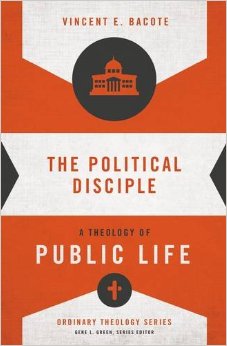 The Political Disciples: A Theology of Public Life Vincent E. Bacote (Zondervan) $11.99 Dr. Bacote is one of the great scholars of our time, a fun and upbeat African American professor who has written widely about Dutch statesman Abraham Kuyper, so is ideally suited for this broad conversation about political theology. Bacote is not a political scientist, but, in keeping with this series, is adept at taking his theological training and relating it to the topic at hand: faith and public life. The book is not on government, per se, or even citizenship, and he notes that we perhaps would benefit from a broader view of our civic responsibilities in the public realm. Much of this book tells of Vince’s own journey as an evangelical come to his own in the midst of the perplexing rise of the fundamentalist religious right; coming from an African American home, he leaned Democratic; as an evangelical reading Francis Schaeffer he became about being pro-life. His early formation within evangelical circles warned him about social involvement and other “worldly” pursuits, but yet it was Falwell and Robertson who called people of evangelical faith into the public sphere in the 80s and 90s. My, my, what an interesting, curious journey, one that mirrors the twists and turns taken by many of us, and which have been writ large in the American religious and political landscapes in our time.
The Political Disciples: A Theology of Public Life Vincent E. Bacote (Zondervan) $11.99 Dr. Bacote is one of the great scholars of our time, a fun and upbeat African American professor who has written widely about Dutch statesman Abraham Kuyper, so is ideally suited for this broad conversation about political theology. Bacote is not a political scientist, but, in keeping with this series, is adept at taking his theological training and relating it to the topic at hand: faith and public life. The book is not on government, per se, or even citizenship, and he notes that we perhaps would benefit from a broader view of our civic responsibilities in the public realm. Much of this book tells of Vince’s own journey as an evangelical come to his own in the midst of the perplexing rise of the fundamentalist religious right; coming from an African American home, he leaned Democratic; as an evangelical reading Francis Schaeffer he became about being pro-life. His early formation within evangelical circles warned him about social involvement and other “worldly” pursuits, but yet it was Falwell and Robertson who called people of evangelical faith into the public sphere in the 80s and 90s. My, my, what an interesting, curious journey, one that mirrors the twists and turns taken by many of us, and which have been writ large in the American religious and political landscapes in our time.
Dr. Bacote walks us through essential Biblical and theological teaching that could guide us towards a more robust, lasting, non-partisan and faithful public theology, helps us think about social change in more fruitful ways, and shares – with hints of Kuyper for those with ears to hear – how we might approach the pluralism of our culture, even around contentious issues like abortion and marriage equality. He talks helpfully about the cultural mandate, about our responsibility and the joy of serving Christ’s Lordship in civil life. Much more could be said (and Vince himself has, for instance in his wonderful book called The Spirit In Public Theology: Appropriating the Legacy of Abraham Kuyper.) He is the Director of the Center for Applied Christian Ethics at Wheaton College.
Dr. Vincent Bacote will, by the way, be the 2015 speaker for the annual Hearts & Minds Summer Lecture in Pittsburgh this coming July. More on that later.
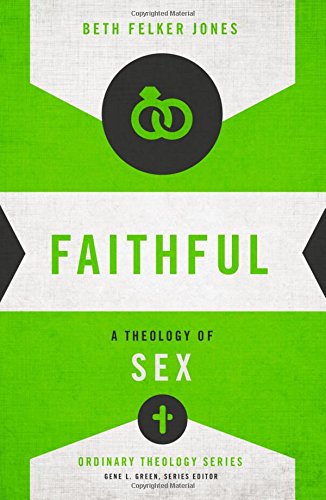 Faithful: A Theology of Sex Beth Felker Jones (Zondervan) $11.99 (Zondervan) $11.99 Well, this is a topic about which there has been much written. For all the dualisms that separate body and soul, Biblical faith and daily matters, Christians of all sorts of written widely about sex. And there is a lot that is very, very good. Yet, it would be a conspicuous if a series like this on “ordinary” life failed to address this essential aspect of our daily living. What could be said, in just 100 pages? Very, very much, as it ends up. Again, the strength of this little series is that it is bringing theological experts into the conversations, allowing their expertise to inform the topics. Welker has a PhD from Duke and is an associate professor of theology and here sketches a theology of sexuality “that demonstrates that sex is not about legalistic morals with no basis in reality but rather about the God who is faithful to us.” By grounding gender and sexuality in the realities of God’s own creative process in and intent for the world –and the broad drama of the Biblical story, creation/fall/redemption – we can frame our understandings and navigate our difficulties in ways that are better than mere moralism. “What if sex is about God and who God is and God’s intentions for the good creation,” she asks. Jones is not the first to do this, but perhaps this short contribution is one of the best, insisting that sexuality is created good, distorted and fallen, but being redeemed and restored. She is a rigorous scholar – the footnotes themselves are a fascinating survey of writers and thinkers throughout church history, as well as contemporary social critics who offer good nuggets of insight. This reminds us of the very essence of this whole series of “ordinary theology” that there is deep significance of the body and the created realities in which we live out our faith.
Faithful: A Theology of Sex Beth Felker Jones (Zondervan) $11.99 (Zondervan) $11.99 Well, this is a topic about which there has been much written. For all the dualisms that separate body and soul, Biblical faith and daily matters, Christians of all sorts of written widely about sex. And there is a lot that is very, very good. Yet, it would be a conspicuous if a series like this on “ordinary” life failed to address this essential aspect of our daily living. What could be said, in just 100 pages? Very, very much, as it ends up. Again, the strength of this little series is that it is bringing theological experts into the conversations, allowing their expertise to inform the topics. Welker has a PhD from Duke and is an associate professor of theology and here sketches a theology of sexuality “that demonstrates that sex is not about legalistic morals with no basis in reality but rather about the God who is faithful to us.” By grounding gender and sexuality in the realities of God’s own creative process in and intent for the world –and the broad drama of the Biblical story, creation/fall/redemption – we can frame our understandings and navigate our difficulties in ways that are better than mere moralism. “What if sex is about God and who God is and God’s intentions for the good creation,” she asks. Jones is not the first to do this, but perhaps this short contribution is one of the best, insisting that sexuality is created good, distorted and fallen, but being redeemed and restored. She is a rigorous scholar – the footnotes themselves are a fascinating survey of writers and thinkers throughout church history, as well as contemporary social critics who offer good nuggets of insight. This reminds us of the very essence of this whole series of “ordinary theology” that there is deep significance of the body and the created realities in which we live out our faith.
BookNotes
DISCOUNT
20% off
each
Ordinary Theology
only $8 each if you buy all four
order here
takes you to the secure Hearts & Minds order form page
just tell us what you want
inquire here
if you have questions or need more information
just ask us what you want to know
Hearts & Minds 234 East Main Street Dallastown, PA 17313 717-246-3333
